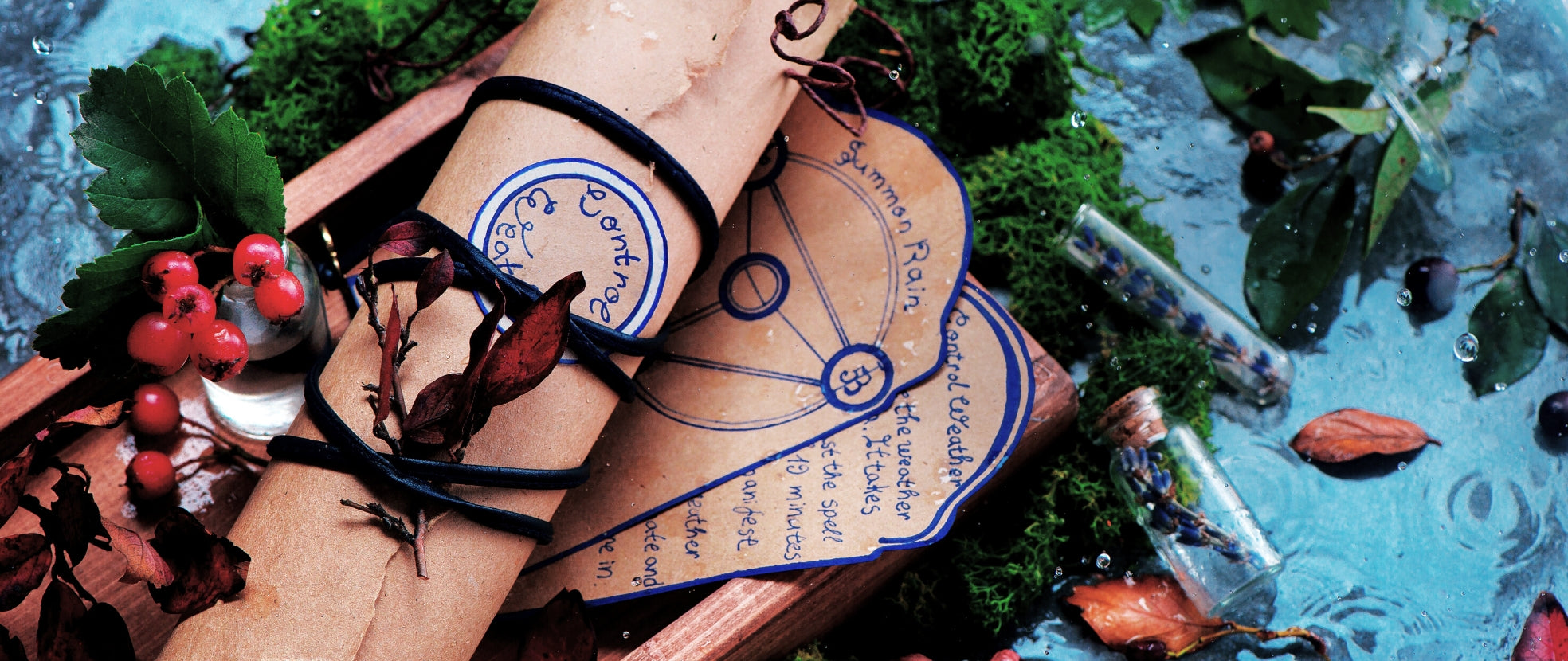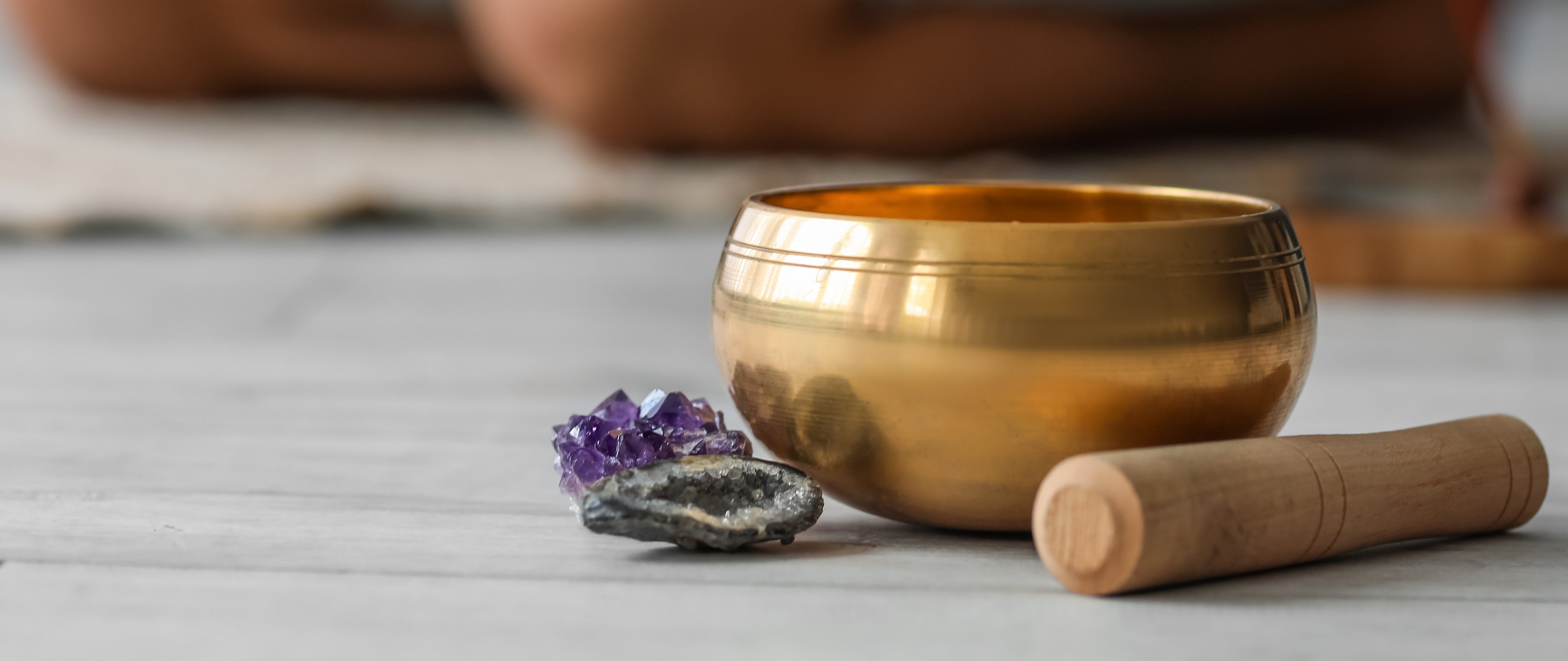Witchcraft or being a witch isn't just a vibe, fashion sense, or an aesthetic standard you pull off to distinguish yourself from the crowd; it's altogether a mindset. An attitude. A deliberate lifestyle of self-care and activism.
From the feminist perspective, a witch is a woman deeply in touch with her divine femininity and nature's energy. Lisa Lister, herself a modern witch and wellness practitioner, defines a witch as a woman in her power. She is in sync with the cycles of nature and the phases of the moon.
Further, she explains in her book Witch: Unleashed. Untamed. Unapologetic that the modern definition of a witch has evolved to pertain to a woman who desires to use her intuition and inner power to manifest her goals and desires.
She's cyclic, she's powerful, she can embrace nature to heal herself and her community, Lister writes.
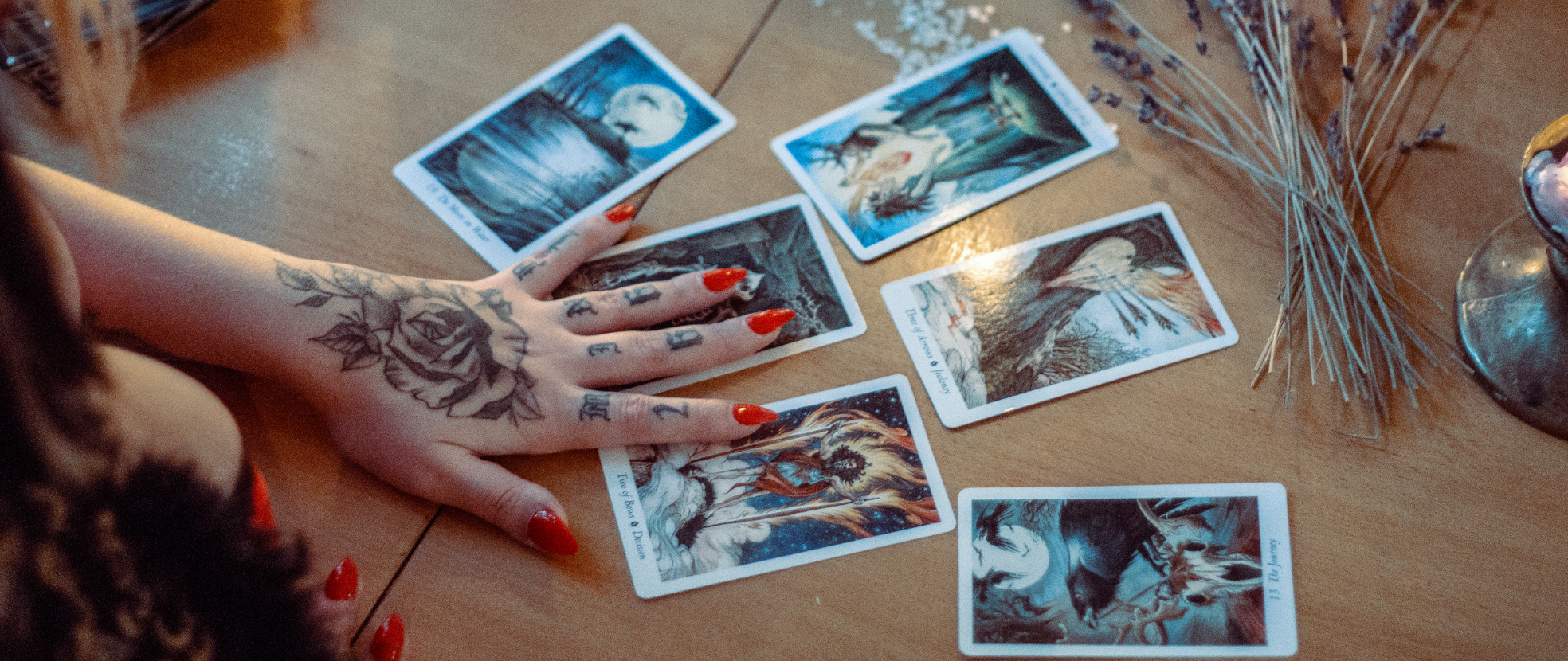
Who Can Become a Witch?
While witchcraft has its roots in the feminist movement and that most witches are women, anyone can become a witch regardless of gender, race, or economic status.
As long as you revere nature, eager to learn how to interact with deities through rituals, and want to be attuned to the energies of the universe, then you'll always have a home with the witches.
Although some are born into families of practicing witches while others possess natural abilities and nurtured them as they grew up. Others still join covens to discover and learn a branch of magick.
Regardless, witches are united by the fundamental belief of being one with nature, seeing things with an open mind, and healing themselves and others.
As New York-based astrologer Lisa Stardust puts it:
We are seers of truths and givers of wisdom, and nurturers of Earth and those who inhabit it. We are high-vibe peeps who want to make a better place”not cauldron-stirring troublemakers¦
OK, But What Does a Witch Do?
In general, witches practice magick (spelled with a ˜k' to differentiate it from stage magic). Sophie Saint Thomas, an astrologer and author, says of magick as a practice of raising and directing energy to fulfill an intention. Witches believe that everything has energy, including nature, orgasms, and human beings.
However, how they work with energies and how they practice their witchcraft varies from one witch to another. Witches have the complete freedom to live out their beliefs in any way personal to them. They’re also free to practice witchcraft simply as a skill, a religious ritual to connect to a deity, or both.
Witches perform their rituals to achieve any or all of these 3 goals:
1. To connect with nature - For witches, alignment with nature is essential. Their rituals involve the use of the elements earth, water, air, and fire to boost their inner power and to receive information from the divine realm. They rely on the sun and the moon for power to cast spells, illuminate truths, and uncover mysteries.
Witches also show love and appreciation to all living things namely plants, flowers, animals, and humans. Mother Earth is the center of their worship and devotion.
2. Purify the mind, body, heart, and spirit - Witches are sensitive to the energies of people and the world around them. With their high intuition and ability to connect with subtle energies, they can easily pick up on vibrations that others don't notice.
This is why they regularly cleanse their mind, body, and spirit (and keep themselves grounded) using various divination tools like spells, crystals (quartz, pyrite, and obsidian), herbs, foods and spices, healing baths, and meditations.
Witches also use astrology, tarot reading, scrying, and dream interpretation to manifest their intentions and have a better understanding of the past, present, and future.
3. Connect with ancestors and spirits - Witches commune with and honour their ancestors so their post-mortem energy flows better around them. They invoke their wisdom and guidance as they go through situations they've never experienced.
For witches, ancestral spirits are like guardian angels that help the living walk the right path and protect them against harm. Many witches reconnect with their ancestors and their departed loved ones during the Samhain celebration, believing that the veil that separates the living and the dead becomes thin during this time. And it makes it easier to summon their presence, commune with them, and share a feast with them.
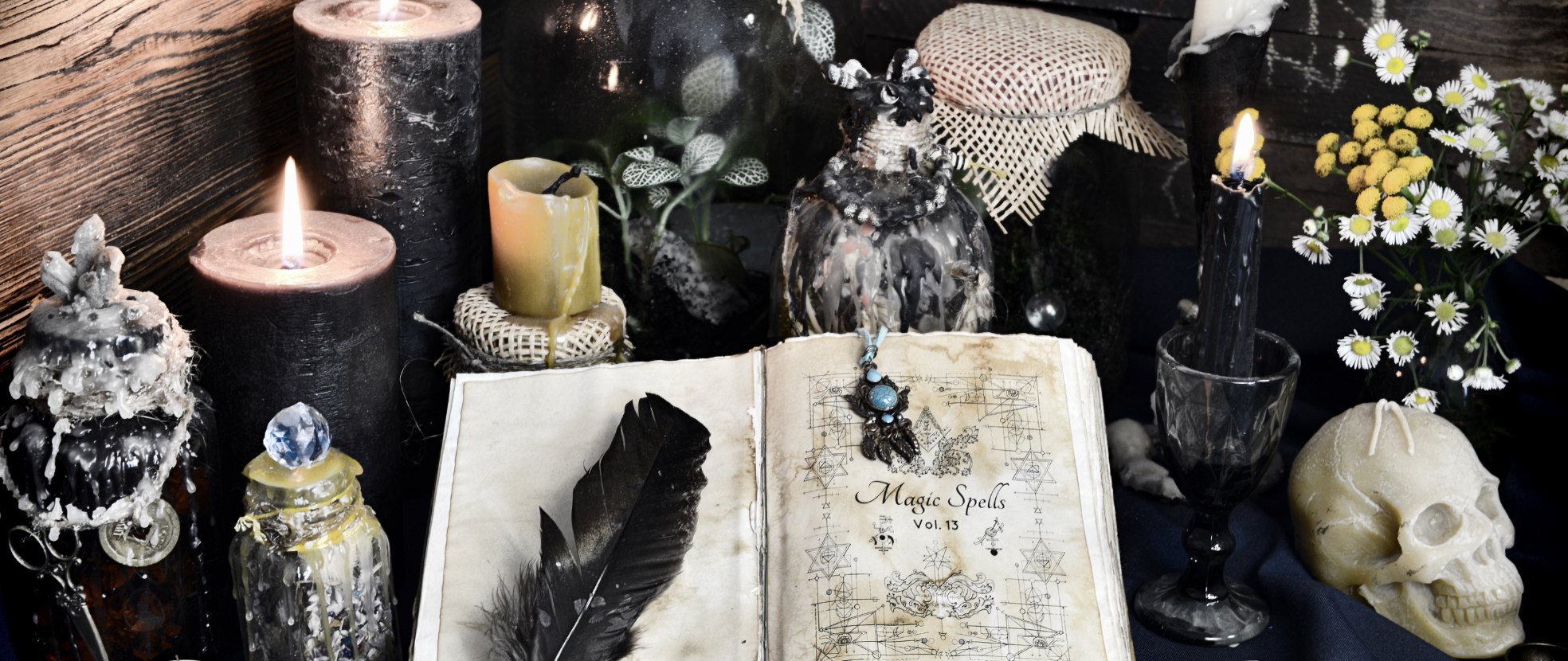
Paganism, Wicca, Altar, and Other Witchy Terms to Learn
You've probably heard of Paganism and Wicca while familiarizing yourself with modern witchcraft. What do these terms mean? Why are they relevant in the practice of witchcraft?
As you go deeper into the practice, you'll also learn about these terms and more. So best to at least have a basic understanding of them now.
1. Paganism - It is a catch-all term for a wide variety of spiritual belief systems outside the Abrahamic faith. Paganism is sometimes called earth-based religion. Today, a Pagan means someone who adheres to a faith founded on nature, astronomical markers, the cycles of the season, or a polytheistic religious structure (following more than one god). Witchcraft is part of the dozens of practices under paganism.
2. Wicca - A polytheistic belief system, Wicca is a witchcraft tradition rooted in nature which began in the U.K. in the 1940s. Wiccan rituals focus on the phases of the moon, solar equinoxes, and solstices among others. Wiccan practitioners have one principal rule: Harm no one and do as you will. Many Wiccans practice in groups (i.e., in covens) although they have the liberty to practice privately and create their own rituals (Solitary Wiccans).
3. Coven - This refers to the community or gathering of witches led by a high priest and/or high priestess. Their meetings usually involve celebrations of seasonal festivals (sabats) and observation of a full moon (esbats).
4. Altar - This is the space where witches cast their spells, chants, and worship rituals to their gods and goddesses. The altar is covered with a cloth to protect it from spills, ash from burned herbs, incense, water, and candle wax. (READ: How to Set Up Your First Altar)
5. Grimoire - The umbrella term for magick texts used in witchcraft.
6. Book of Shadows - The personal grimoire of a Wiccan practitioner where they store their thoughts, hexes, spells, rituals, and other information vital to their practice.
7. Initiation - The ceremony of officially admitting a budding witch into a coven after a period of studying the coven's rituals and traditions. Those with substantial knowledge, experience, and abilities can be proclaimed the leader of the coven.
8. Solitary - Witches who choose not to be part of any coven but to practice their own witchcraft instead.
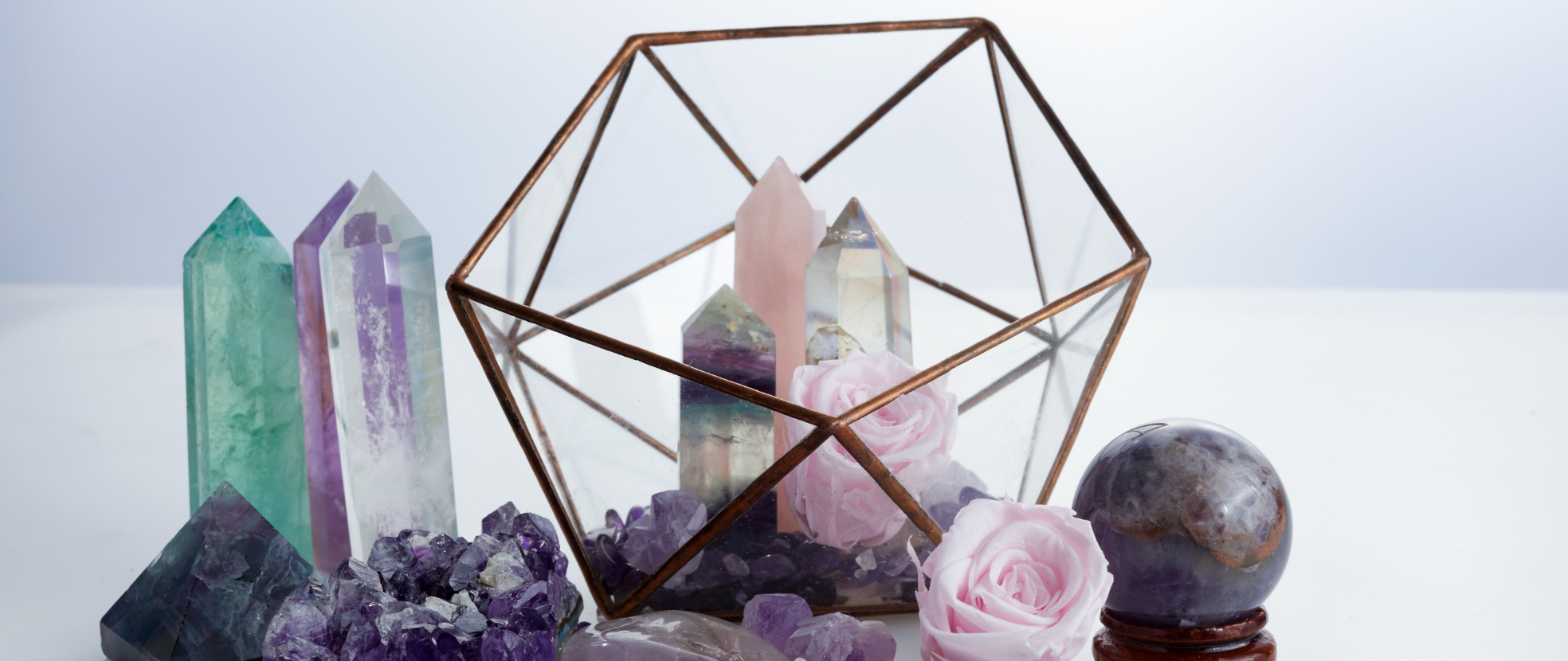
How Do I Become a Practicing Witch?
Here are some tips to become a true-blue witch:
1. Join a community. Some aspiring witches may go the path of organized spiritual groups and go through initiation rites. This is an ideal way to be immersed in the practice if you don't know anything about witchcraft or if you don't know anyone who can introduce you to it.
Covens are also a great option if you work best with groups, enjoy camaraderie, and you desire to know how magick and rituals are performed before practicing them on your own. According to Saint Thomas, a coven can consist of 13 members and have an organized initiation ritual. It can also be more laid-back or casual.
If you choose to be in a coven, remember to relish the company of like-minded witches and to hone your practice by learning from their insights and experiences. (Check out this article for a list of factors to consider before joining a pagan group.)
2. Focus on yourself, not on acquiring mystical tools. - Some people get so bewitched by the aesthetically pleasing rituals by TikTok and Instagram influencers that their first reaction is to grab all the tools they see to get started with their own practice.
Of course, crystals, herbs, and tarot cards are necessary instruments in witchcraft. But these tools are only supplementary to the powerful asset that you already have: yourself.
For example, if your intention is to be more loving and compassionate to yourself, learn to instill positive affirmations in yourself each time you wake up. If you want to be more forgiving, learn to open your heart and choose to release forgiveness to those who wronged you.
Then once you've practiced these habits, get the crystal that will amplify your goals or invoke the energy of the deity you worship.
3. Practice and master your rituals. - Start with learning some basic rituals like casting a spell, performing an energy cleanse, or familiarizing yourself with various crystal shapes and their uses. Write down your processes in your Book of Shadows to keep stock of them.
(READ: Set New Goals with These 3 Powerful Rituals)
4. Collect your tools. - Once you're already decided on the type of witchcraft you want to pursue, the next step is to stock up your witchcraft toolbox. These could be candles, healing crystals (points, tumbled stones, pyramids, crystal balls, pendulums, etc.), tarot cards, spell books, herbs, and potion ingredients. You can buy these items in bulk from a good metaphysical shop.
If you need to shop for tools for your witchcraft, Stonebridge Imports and The Rock Space have a complete line of magick supplies for a wide range of rituals. Whether you’re just getting started with your practice or looking to buy new ones, we have everything you need”from crystals to herbs to wands, to tarot cards and more.
Browse and shop magickal supplies and tools
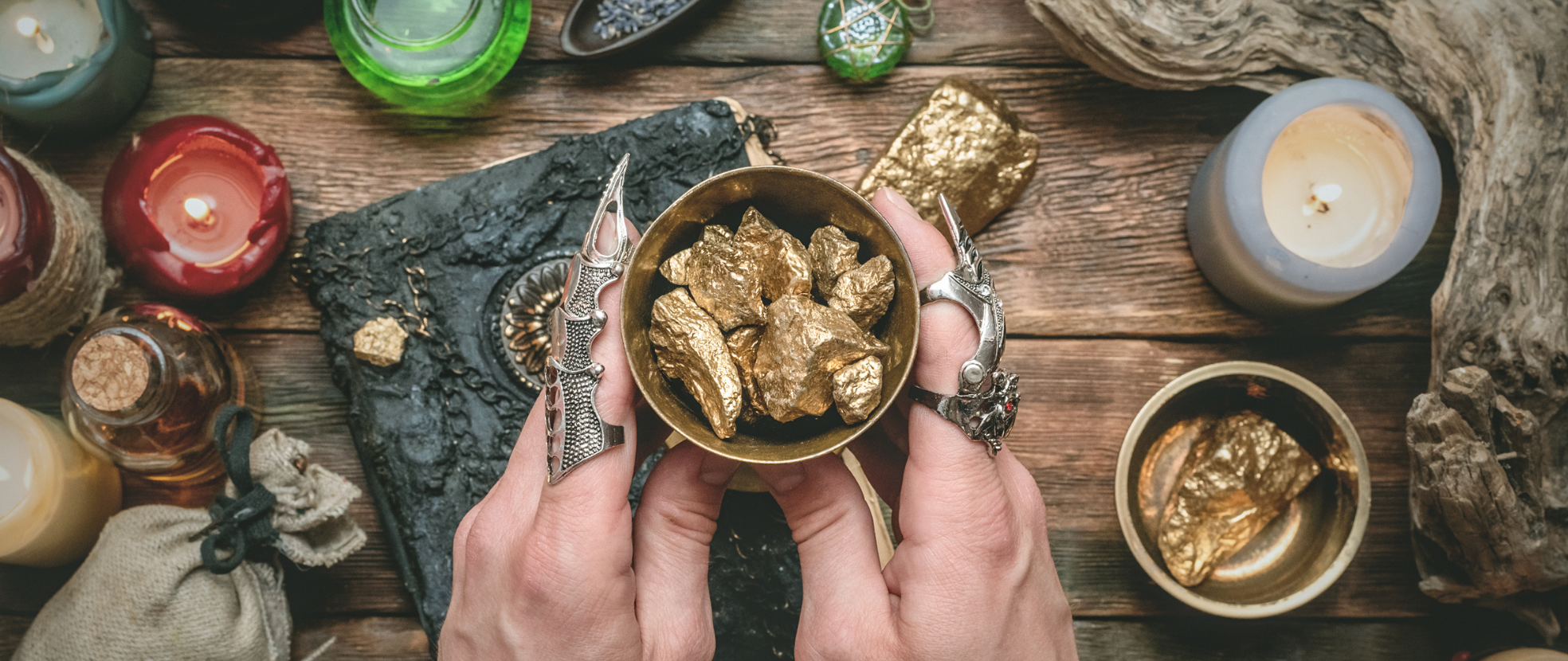
Sources:
10 Things You Need to Know About Paganism. (2019, June 25). Retrieved September 28, 2022, from https://www.learnreligions.com/facts-about-paganism-and-wicca-2562832
Berger, H. A. (2021, August 30). What is Wicca? An expert on modern witchcraft explains. Retrieved September 28, 2022, from https://theconversation.com/what-is-wicca-an-expert-on-modern-witchcraft-explains-165939
Bosker, B. (2020, February 14). Why Is Witchcraft on the Rise? Retrieved September 28, 2022, from https://www.theatlantic.com/magazine/archive/2020/03/witchcraft-juliet-diaz/605518/
Eckardt, S. (2018, October 30). How to Become a Witch: A Beginner's Guide. Retrieved September 28, 2022, from https://www.wmagazine.com/story/how-to-become-a-witch-beginners-guide
Here's What It Means to Be a Real-Life Witch In 2021. (2021, October 29). Retrieved September 28, 2022, from https://www.instyle.com/lifestyle/witch-meaning-myths
History.com Editors. (2018, August 21). Wicca. Retrieved September 28, 2022, from https://www.history.com/topics/religion/wicca
Is Witchcraft Considered a Religion? (2018, January 6). Retrieved September 28, 2022, from https://www.learnreligions.com/is-witchcraft-a-religion-2561855
Joho, J. (2021, October 29). How to be a witch without stealing other people's cultures. Retrieved September 28, 2022, from https://mashable.com/article/witchtok-problematic-witch-cultural-appropriation
Miller, C. (2022, January 19). How modern witches are enchanting TikTok. Retrieved September 28, 2022, from https://theconversation.com/how-modern-witches-are-enchanting-tiktok-174576
Pérez, C. (2017, June 19). How to Awaken Your Inner Witch. Retrieved September 28, 2022, from https://www.vogue.com/article/how-to-awaken-your-inner-witch
Potter, S., & Potter, S. (2021, November 1).* Witches Are Very Real”I Should Know, Because I Am One.* Retrieved September 28, 2022, from https://www.cosmopolitan.com/lifestyle/a35712182/how-to-become-a-witch/
Thomas, S. S. (2021, December 17). Are Witches Real? We Asked Modern Witches to Debunk Magick's Biggest Misconceptions. Retrieved September 28, 2022, from https://www.allure.com/story/real-life-witches-myths-misconceptions
Wicca, Witchcraft or Paganism - What's the Difference? (2020, January 12). Retrieved September 28, 2022, from https://www.learnreligions.com/wicca-witchcraft-or-paganism-2562823



